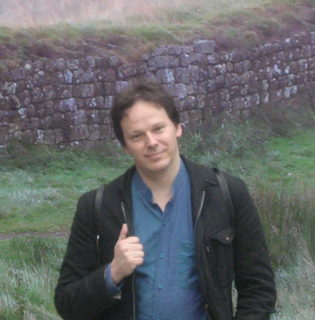Article begins

Image description: A man with short brown hair stands in front of a stone wall. He wears a blue shirt and black jacket. Green grass can be seen in the background.
Caption: David Graeber
1961–2020
David Graeber passed away in a hospital in Venice, Italy, on September 2, 2020.
Graeber’s knowledge and creativity, expressed through powerful yet clear prose, excited all fields of anthropology. Outside of our discipline, he was a leading figure in two global phenomena: the Occupy Wall Street movement and the critical reevaluation of bureaucracy and the kinds of pointless occupations he called “bullshit jobs.”
Graeber was born in New York City in 1961 to a printer and garment worker whose involvement in labor movements he credited with his lifelong commitment to anarchism. Graeber received his PhD in 1996 from the University of Chicago where he wrote his dissertation on the legacy of slavery in Malagasy villages under the direction of Marshall Sahlins. He taught at Haverford College (1996–1997), Yale University (1998–2007), Goldsmiths, University of London (2007–2013), and the London School of Economics (2013–2020).
His early theoretical works, Toward an Anthropological Theory of Value (2001), Fragments of an Anarchist Anthropology (2004), and Possibilities (2007), focused on how structures of power are simultaneously real and illusionary, thereby making them influential yet surmountable. Drawn from fieldwork in Madagascar and Canada, Lost People (2007) and Direct Action (2009) are classic ethnographies of small groups in dialogue with the larger historical processes of colonialism, nationalism, and capitalism. They are works of humanism expressing the ever-present capacity for freedom and thereby dignity, mellifluent combinations of narrative and exegeses, and give intimate attention to the processes that condemn and energies that liberate.
Turning to ethnology, which magnified his rare abilities for both broad synthesis and abductive insight, Graeber began a period of unparalleled productivity and contribution to social movements. Debt: The First 500 Years (2011) brought the financial crisis into a deeper study of economy and society. Now published in 20 languages, it received the Gregory Bateson Book Prize from the Society for Cultural Anthropology and the first annual Bread and Roses award for radical publishing. A potent essay on the functionless nature of many occupations was widely syndicated and followed by the book, Bullshit Jobs: A Theory (2017). In addition to his other books, his shorter public essays were wide-ranging, taking on comic book villains, playfulness, Brexit, the academic field of economics, the necktie, and other subjects.
Within the academy, he embarked on a series of projects from which we can better understand instances and conditions for social creativity. A collected volume of essays with Marshall Sahlins, On Kings (2017), provided a comprehensive ethnological analysis of institutional and cultural power. With the archaeologist David Wengrow, he wrote articles that brought to the foreground prehistoric peoples’ capacity to self-consciously redefine their societies. In their forthcoming work, The Dawn of Everything, they provide alternative histories to the most pervasive myth making of the social sciences over the last 200 years.
Graeber’s dedication to social creativity lead him to activities beyond research and teaching. He is credited as a cofounder of the Occupy movement and a coauthor of the phrase “We are the 99 percent.” With great risk, he crossed into the Rojava Region in Syria during its ongoing civil war. There, he reported on Kurdish democratic collectives and drew parallels to the societal cooperation his father saw as a member of the Abraham Lincoln Brigade in the Spanish Civil War. His involvement in student movements, strikes, and teach-ins within the academy was an extension of his indefatigable moral dedication.
His teachers, students, and friends will remember the eclecticism and enthusiasm with which he engaged in conversations and relationships. He brought his immense faculties to his personal life where he used them to listen, remember, and deeply care about those he met and thus integrate their lives with his and his work. We are saddened by the loss of our friend. His involvement in the field and our lives has radically increased our possibilities as a profession and people.
He is survived by his wife, the writer and artist Nika Dubrovsky.
(Yancey Orr)
Cite as: Orr, Yancey. 2020. “David Graeber.” Anthropology News website, November 5, 2020. DOI: 10.14506/AN.1527

